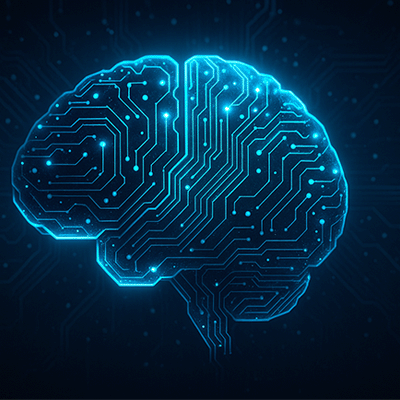What Is General AI? Meet the Technology That Will Imitate the Human Brain
What is general AI? This question has captivated scientists, technologists, and futurists for decades. Artificial General Intelligence (AGI), often referred to as “strong AI,” represents a frontier in artificial intelligence research.
Unlike narrow AI, which is designed for specific tasks, AGI aims to replicate the broad cognitive abilities of the human brain. Imagine a machine that can learn, reason, and adapt across a wide range of tasks without explicit programming for each one. This vision of AGI holds the promise of revolutionizing industries, from healthcare to education, and transforming our daily lives.
Understanding General AI 🧠

Defining General AI 🧾
Artificial General Intelligence is a theoretical form of AI that possesses the ability to understand, learn, and apply knowledge in a manner indistinguishable from human intelligence. AGI systems would not be limited to specific tasks; instead, they could perform any intellectual task that a human can, adapting to new situations and learning from experience. This contrasts with current AI systems, which are typically designed for narrow applications and lack the flexibility to handle tasks outside their training.
Key Characteristics of AGI 🧬
- Adaptability: AGI can transfer knowledge from one domain to another, applying learning in new and diverse contexts.
- Autonomy: It can operate independently, making decisions without human intervention.
- Generalization: AGI can generalize learning from specific instances to broader concepts, enabling it to tackle unfamiliar problems.
- Self-awareness: AGI may eventually exhibit self-awareness, understanding its own existence and purpose.
The Evolution of AI: From Narrow to General 🔁
Narrow AI vs. General AI ⚖️
Most AI systems in use today are examples of narrow AI, designed to perform specific tasks such as language translation, facial recognition, or recommendation systems. These systems operate under predefined parameters and lack the ability to adapt beyond their programming.
In contrast, AGI possesses the versatility to handle a wide array of tasks, learning and adapting as needed. This leap from narrow to general intelligence represents a significant shift in AI capabilities.
The Path to AGI 🚀
Developing AGI involves integrating various disciplines, including neuroscience, cognitive science, computer science, and engineering. Researchers aim to create systems that mimic the neural structures and processes of the human brain, enabling machines to process information, learn from experience, and adapt to new situations.
Potential Applications of AGI 🌍
Healthcare 🏥
AGI could revolutionize healthcare by providing personalized treatment plans, diagnosing diseases with high accuracy, and managing patient care efficiently. Its ability to process vast amounts of medical data and learn from new information would enhance decision-making and patient outcomes.
Education 📚
In education, AGI could offer customized learning experiences, adapting to individual student needs and learning styles. It could also assist educators by automating administrative tasks and providing insights into student performance.
Transportation 🚗
AGI could enhance transportation systems through intelligent traffic management, autonomous vehicles, and predictive maintenance. Its capacity to learn from real-time data would improve efficiency and safety on the roads.
Finance 💸
In the financial sector, AGI could analyze market trends, manage investment portfolios, and detect fraudulent activities. Its ability to adapt to changing market conditions would be invaluable.
Customer Service 💼
AGI-powered systems could provide highly responsive and personalized customer service, understanding and addressing customer needs effectively. This would enhance customer satisfaction and streamline business operations.
Challenges and Ethical Considerations ⚠️
Technical Challenges 🛠️
Developing AGI poses significant technical challenges, including creating algorithms capable of general learning, ensuring system robustness, and managing computational resources. Achieving human-like intelligence in machines requires breakthroughs in multiple areas of research.
Ethical Implications 🧩
The advent of AGI raises profound ethical questions. Concerns include the potential for job displacement, privacy issues, decision-making transparency, and the possibility of unintended consequences. Establishing ethical guidelines and regulatory frameworks is crucial to address these challenges.
Control and Alignment 🎯
Ensuring that AGI systems align with human values and goals is a critical concern. Researchers emphasize the importance of developing control mechanisms to prevent misuse and ensure that AGI acts in the best interests of humanity.
Embracing the Future of Intelligence 🌟
The quest to answer “what is general AI” leads us to envision a future where machines possess the cognitive abilities of humans, transforming industries and daily life. While challenges remain, the potential benefits of AGI are immense, offering solutions to complex problems and enhancing human capabilities.
As we advance toward this future, it is imperative to approach AGI development with responsibility, ethical consideration, and a commitment to aligning technological progress with human values. By doing so, we can harness the power of general AI to create a better, more intelligent world.
Frequently Asked Questions (FAQ) ❓
1. What is the difference between narrow AI and general AI?
- Narrow AI is designed for specific tasks and operates under predefined parameters, while general AI possesses the ability to learn and adapt across a wide range of tasks.
2. Is AGI currently available?
- No, AGI remains a theoretical concept. While significant progress has been made in AI research, achieving true general intelligence comparable to human cognition has not yet been realized.
3. What are the potential risks of AGI?
- Potential risks include job displacement, ethical concerns regarding decision-making, and the need for control mechanisms to prevent misuse.
4. How will AGI impact the job market?
- AGI could automate tasks across various industries, leading to job displacement in some areas while creating new opportunities that require human oversight.
5. What steps are being taken to ensure ethical AGI development?
- Researchers and organizations are working on ethical guidelines and control systems to ensure AGI development remains aligned with human values.